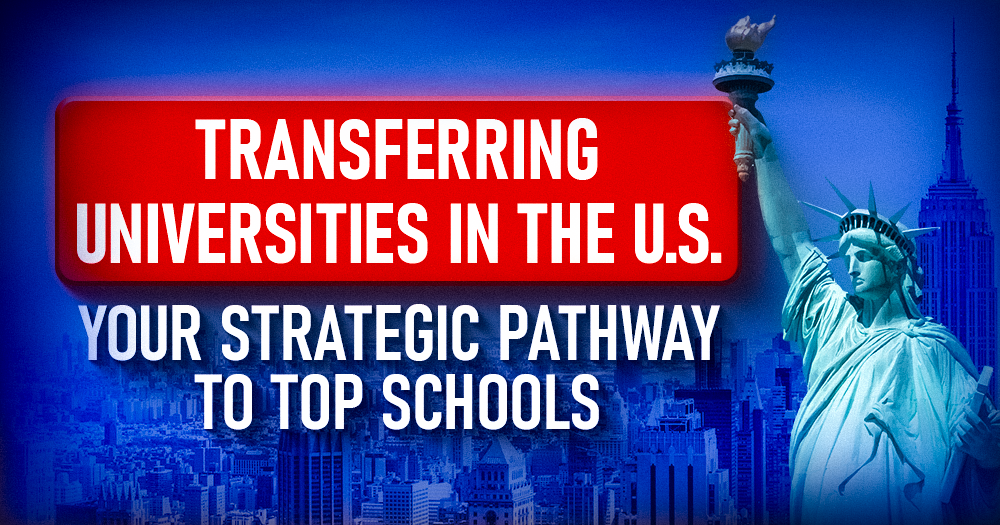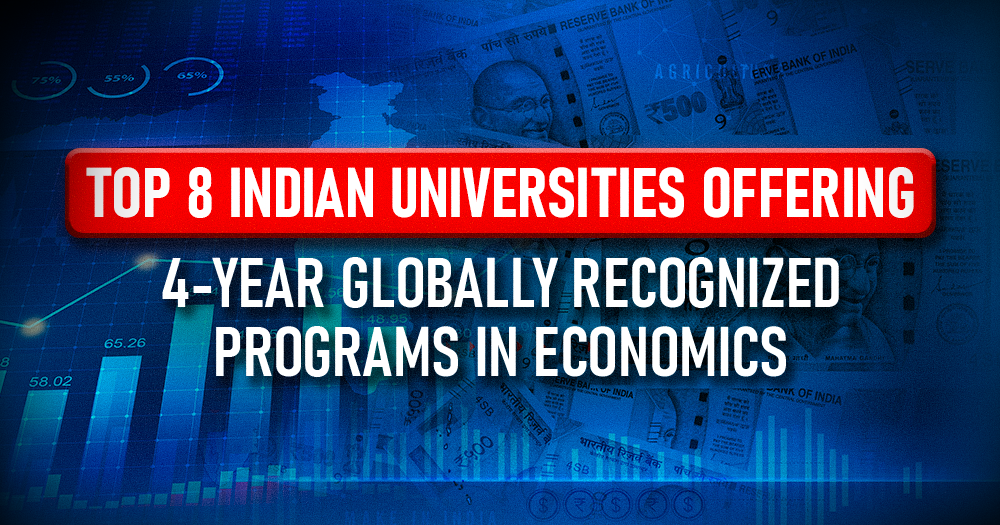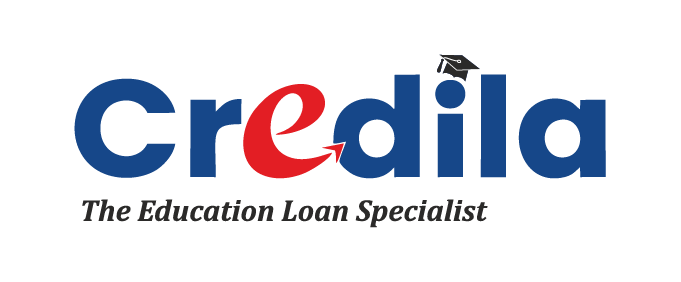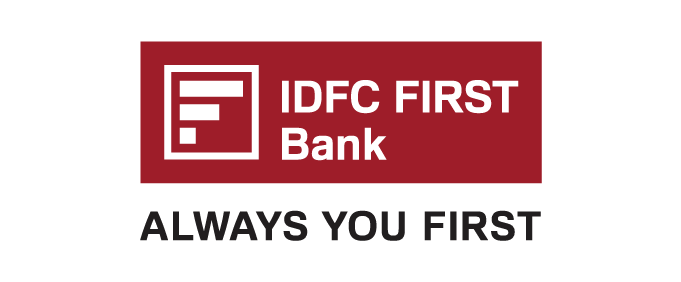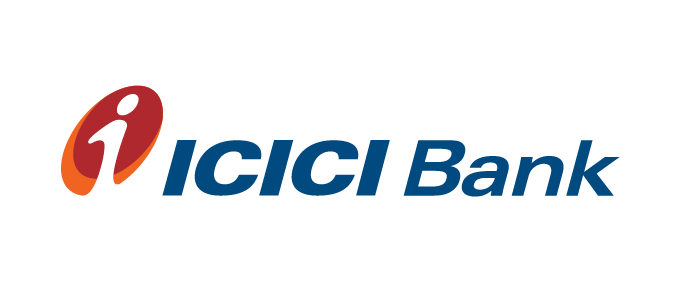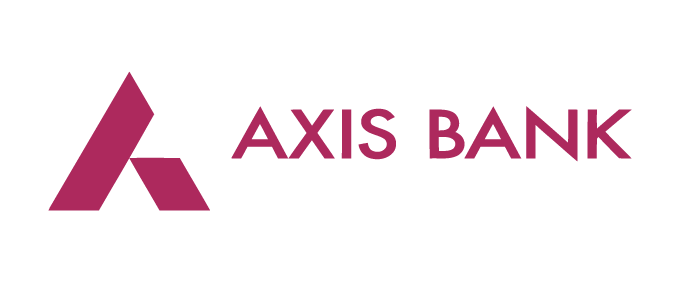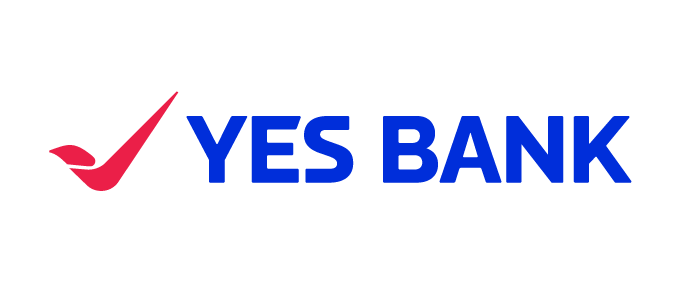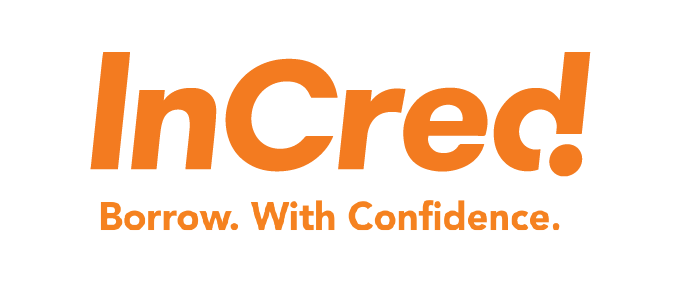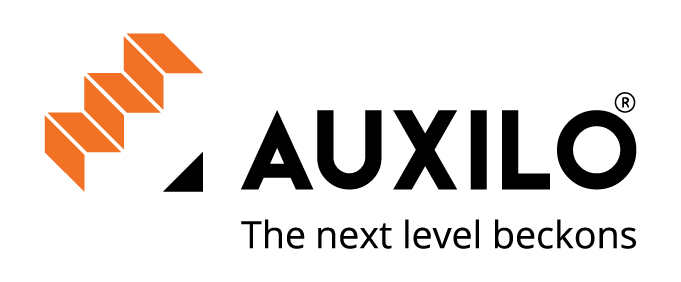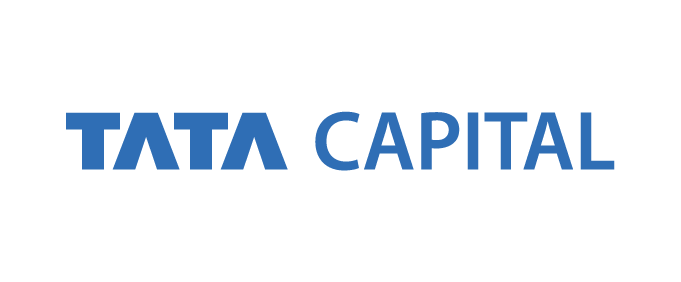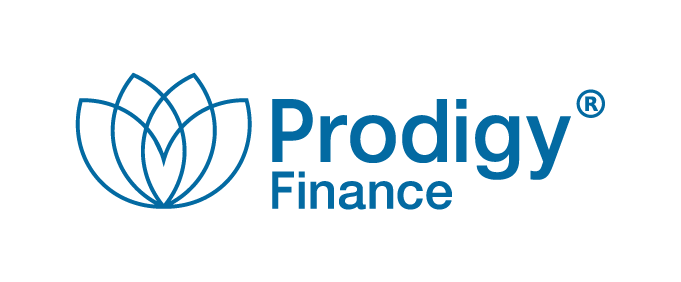Learn about in demand specializations under economics, various career options and average salaries
Money, markets, budgets, policies, graphs, numbers – you may think this is how your future in economics look, but economics is much more! A degree in economics is your key to a plethora of opportunities. It opens career prospects in multiple sectors allowing you to make an impact at both the global and local levels.
Imagine playing a pivotal role in unravelling how the world functions – understanding people’s decision-making processes, what makes businesses thrive, how governments and policies impact economic growth, and more – economics provides you with the tools to solve real-world problems and make a tangible impact on society.
Your economics degree empowers you to contribute in numerous ways. You could work with the government on public policy, as a financial analyst at a top bank predicting market trends, or as a consultant with an international organization on a poverty alleviation program. You could also work as a professor helping to shape the minds of future economists.
The career paths are plentiful, and the impact you make is significant! In this blog, we will guide you through the most impactful careers in the world of economics that can propel your career trajectory toward success.
An economics degree program is designed to equip you with diverse skills, offering insights into various facets of economics. The knowledge gained will empower you to tackle real-world challenges and make meaningful contributions across different domains. In general, any economic program will expand your knowledge base and train you in the following areas:
- Macroeconomics
- Microeconomics
- Econometrics
- Finance
- Public Economics
- Accounting
- Market Dynamics
- Production and consumption
- Labour Economics
- Game theory
- Understanding of demand and supply
- International Economics
- Development Economics and more
Here’s an Overview of Different Career Paths in the Field of Economics
A master’s degree in economics offers a wide range of lucrative career opportunities across multiple sectors. As an economist, you can play a key role in shaping public policies, collaborate with international organizations, design financial strategies, and use your expertise to make an impact on both global and local scales. Let us explore the diverse career paths available to you as a professional economist.
Public Policy and Government
As an economist, you play a vital role in influencing public policy and the decision-making process of governments. Equipped with the critical capabilities to forecast economic trends, analyze data, and assess the impact of different policy initiatives, economists can have a long-lasting effect on societal advancement, public welfare, and economic stability. For instance, if you work as an economist at the World Bank or the International Monetary Fund (IMF), you will play a pivotal role in crafting strategies to promote sustainable development, alleviate poverty, and stabilize an economy in a financial crisis . Your expertise and analysis would influence the financial programs and international aid efforts, impacting global economic conditions.
Economists work closely with governments at the national and local levels, providing integral inputs in different areas like taxation by suggesting tax reforms, influencing fiscal policy, and strategizing public spending. You study and analyze economic data on various parameters to help make informed decisions on budget allocations, developing social welfare programs, and advancing developmental and infrastructure projects. For instance, as a healthcare focused economist working with the government, you would assess the public health initiatives for their cost-effectiveness, outreach, and impact, and suggesting improvements to increase the program’s efficiency and reduce costs. Similarly, if you are working on environmental regulations implemented by the government, you would assess the economic and financial implications of the government’s policies and programs for climate change, providing inputs on making these policies both effective and economically viable.
Additionally, economists play a crucial role in advising governments on various regulatory policies that impact trade, businesses, and consumers. By leveraging your economic acumen, you can ensure a balance between economic growth, fair market practices and consumer protection. With your data-driven inputs, you can suggest legislative changes that help create an economic environment where businesses can profitably operate and individuals can thrive. Your knowledge and skills as an economist can put you at the center stage to tackle pressing issues like income inequality, inflation, unemployment, ultimately helping to create an equitable society and ensuring effective governance.
Skills Required to Succeed as a Public Policy Professional
To have a successful career in public policy and secure influential government roles, you’ll need a strong foundation in economic theory and quantitative analysis. Some of the essential skills you will require include:
- Data Analysis: You need to be proficient in statistical software and econometric techniques to interpret complex datasets.
- Critical Thinking: You must possess the ability to evaluate policy implications and strategize practical solutions for different economic problems.
- Economic Modeling: You must have the expertise to build and analyze economic models to simulate and predict the impact of different policy decisions and economic conditions.
- Legal and Regulatory Knowledge: You must understand economic regulations, compliance requirements, and legal frameworks that affect the development and implementation of policies.
- Behavioral Economics Analysis: You must be proficient in behavioral economics principles to understand how psychological factors influence economic decision-making and policy effectiveness.
- Communication: Strong written and verbal skills are necessary to present your findings and analysis clearly and persuasively to policymakers and the public.
- Research: You must possess the capabilities to design and conduct empirical research to support policy recommendations.
- Collaboration: The ability to work effectively with diverse stakeholders, including government officials, other economists, and the public.
Career Options You Can Explore as a Public Policy Professional
- Policy Analyst: Evaluate the effects of proposed policies and suggest improvements based on economic models and data.
- Economic Advisor: Provide strategic advice to government leaders on economic issues, such as tax policies, trade agreements, and regulatory reforms.
- Research Economist: Conduct in-depth research on economic trends and issues to inform policy decisions.
- Public Finance Economist: Focus on government revenue and expenditure, helping to design efficient and equitable tax systems.
- Health Economist: Analyze the economic aspects of healthcare policies and programs to improve efficiency and outcomes.
- Environmental Economist: Assess the economic impacts of environmental policies and regulations, promoting sustainable practices.
Country Wise Annual Average Salary You Can Expect as a Public Policy Professional
Salaries in public policy and government can vary widely depending on the specific role, level of experience, and location. On average, economists working in government positions can expect the following salary ranges:
- Policy Analyst: $68,000 – $100,000 per year
- Economic Advisor: $79,000 – $100,000 per year
- Research Economist: $70,000 – $100,000 per year
- Public Finance Economist: $78,000 – $100,000 per year
- Health Economist: $69,000 – $100,000 per year
- Environmental Economist: $60,000 – $100,000 per year
Banking, Financial Services and Insurance (BFSI)
If you are someone with a keen interest in analyzing financial markets, assessing risks, developing investment strategies, and delving into the economic policies that impact the financial domain, then a career in the Banking, Financial Services, and Insurance sector can be a dynamic and lucrative career path. Economists in the BFSI sector impact the growth and stability of financial institutions with their invaluable insights that help companies make strategic decisions and engage in risk management practices. For instance, as an economist working at Goldman Sachs or Morgan Stanley, you would leverage your expertise to evaluate economic conditions, predict market trends, and inform the investment decisions of the company. If you are an economist employed by an insurance company, your primary role would be to analyze economic data to help forecast claims, set premium rates, and develop new insurance products.
As an economist working in the BFSI sector, you will play an important role in helping financial institutions adhere to regulatory changes and assist in policy formulation. You can help financial institutions navigate complex regulations, understand the economic implications of newly introduced regulations, and ensure that the institution abides by these policies. For instance, if you are working as an economist at JPMorgan Chase, you would assess the impact of new regulatory frameworks on the bank’s investment portfolio, lending strategies, and risk management practices. You would ensure that the bank is compliant with the changing regulations and stays competitive despite these changes. Economists play a significant role in helping financial institutions predict and adapt to any policy and regulation changes, ensuring smooth functioning and minimizing potential disruptions.
It is interesting to note that economists are also increasingly using the latest advanced technologies like artificial intelligence and machine learning to enhance their analytical abilities. With the help of these technologies, you can now perform analysis on large-scale financial data with greater efficiency and accuracy, thereby, improving the decision-making process. For example, as an economist proficient in using machine learning algorithms, you can effectively detect fraudulent activities, predict market trends and optimize investment portfolios. Economics, combined with technological advancements, can thus help financial institutions in the BFSI sector stay competitive in a dynamic financial environment.
Skills Required to Succeed in the BFSI Sector within Economics Discipline
To thrive as an economist in the BFSI sector, you must possess a strong technical foundation and excellent analytical skills including
- Data Analysis: Proficient in interpreting complex data sets using statistical software and econometric techniques.
- Financial Analysis: Ability to assess financial health and performance by analyzing market data, financial statements, and other economic indicators.
- Risk Management: Proficient in using quantitative methods and economic theories to identify, assess, and mitigate financial risks.
- Economic Forecasting: Ability to apply advanced econometrics models to predict economic trends and assess their potential impact on financial institutions and markets.
- Investment Strategy Development: Proficiency in using economic research and market analysis to create and evaluate investment strategies.
- Regulatory Knowledge: Understand and effectively implement the financial regulations and compliance requirements governing the BFSI industry.
- Quantitative Techniques: Ability to model financial scenarios and assess risk using quantitative techniques (e.g. Monte Carlo simulations).
- Behavioral Economics: Ability to understand the impact of psychological factors on financial decision-making by applying principles of behavioral economics.
Career Options You Can Explore as an Economist in the BFSI Sector
- Financial Analyst: Evaluate financial data, conduct economic research, and provide insights to support investment decisions and corporate strategies.
- Risk Analyst: Assess and manage financial risks, develop risk mitigation strategies, and ensure compliance with regulatory requirements.
- Investment Banker: Advise clients on mergers and acquisitions, capital raising, and other financial transactions, using economic analysis to guide decisions.
- Insurance Economist: Analyze economic trends and data to set premium rates, forecast claims, and develop new insurance products.
- Market Research Analyst: Conduct research on financial markets, analyze economic data, and provide reports to guide investment and business strategies.
- Portfolio Manager: Develop and manage investment portfolios, using economic research and market analysis to optimize returns and manage risks.
- Credit Analyst: Assess the creditworthiness of individuals and companies, using economic data and financial statements to evaluate risk and determine lending decisions.
Country Wise Annual Average Salary You Can Expect as an Economist in the BFSI Sector
Salaries in the BFSI sector can vary widely depending on the specific role, level of experience, and location.
- Financial Analyst: $63,000 – $100,000 per year
- Risk Analyst: $62,000 – $100,000 per year
- Investment Banker: $100,000 – $200,000 per year
- Insurance Economist: $75,000 – $110,000 per year
- Market Research Analyst: $60,000 – $100,000 per year
- Portfolio Manager: $70,000 – $100,000 per year
- Credit Analyst: $63,000 – $100,000 per year
Data Analysis and Research
For an economist, data is a valuable resource that can be utilized to comprehend and solve complex economic problems. As such, data analysis and research are integral aspects of an economist’s role. As an economist specializing in data analysis and research, your primary task will be to interpret large-scale data and draw effective conclusions that inform the development of business strategies, influence policy decisions, and advance academic knowledge. Whether you work in the government or private sector, or in academic or business settings, this specialization enables you to play a pivotal role in driving decision-making processes and facilitating economic progress.
If you choose to work with a purely research-based institution or at think tanks, for example, the National Bureau of Economic Research (NBER) or the Brookings Institution, you will design and conduct empirical research to study the impact of different economic programs, market dynamics, and public policies. Your findings could play a significant role in developing evidence-based policies and strategies to drive economic growth. Similarly, if you work in big tech companies like Amazon and Google, you will collect and analyze user data to forecast market trends, adapt pricing strategies, and improve customer service.
As an economist specializing in data analysis and research, you can establish a lucrative career in public policy and government agencies. For instance, if you work with the U.S. Bureau of Labour Statistics (BLS), you will leverage your expertise to analyze employment data across various parameters to arrive at insights on workforce demographics, wage growth, market trends, and more. Your findings could help improve the efficiency and reach of labour policies and employment programs.
The role of economists in the data analysis and research domain has become even more crucial with the advancements in analytics and the rise of big data. Machine learning algorithms, artificial intelligence and other advanced statistical techniques have allowed economists to derive actionable insights from complex data sets. Mastery of these advanced technologies can put you front and center in the domain, allowing you to develop innovative evidence-based solutions to complex economic challenges, predict economic trends more accurately, uncover hidden patterns, and much more.
Skills Required to Succeed as a Data Analyst and Research Professional within Economics Discipline
- Statistical Analysis: The ability to perform complex data analysis and econometric modelling using statistical software (R, Python, SAS, Stata).
- Big Data Analytics: Proficiency in tools like Hadoop, Spark, and SQL to handle and analyze large data sets.
- Machine Learning: Expertise in using machine learning algorithms for economic data analysis and forecasting.
- Data Visualization: Proficiency in using visual tools (Tableau, Power BI, advanced Excel techniques) to present data insights.
- Econometric Modeling: The ability to analyze economic relationships and predict outcomes by building and interpreting econometric models.
- Programming: Expertise in data manipulation, analysis, and automation using programming languages (Python, R, SQL).
- Data Management: Competence in managing databases, ensuring data integrity, and using data warehousing solutions.
- Research Methodology: Expertise in designing and conducting empirical research studies, including survey design, sampling methods, and experimental economics.
Career Options You Can Explore as a Data Analysis and Research Professional within Economics Discipline
- Data Analyst: Analyze and interpret economic data to provide insights for business strategies, policy development, and research studies.
- Economic Researcher: Conduct empirical research on various economic topics, publish findings, and contribute to academic or policy-oriented research.
- Quantitative Analyst: Use statistical and mathematical models to analyze financial markets, assess risks, and guide investment strategies.
- Business Intelligence Analyst: Develop data-driven insights to support business decision-making, market analysis, and strategic planning.
- Policy Analyst: Evaluate the economic impact of public policies, conduct cost-benefit analyses, and provide recommendations to policymakers.
- Market Research Analyst: Study market conditions, consumer behavior, and industry trends to inform marketing strategies and business decisions.
- Data Scientist: Use advanced analytics, machine learning, and statistical modeling to derive insights from economic and financial data.
- Econometrician: Specialize in applying econometric methods to analyze economic data and test hypotheses about economic relationships.
Country Wise Annual Average Salary You Can Expect as a Data Analysis and Research Professional within Economics Discipline:
- Data Analyst: $68,000 – $100,000 per year
- Economic Researcher: $69,000 – $100,000 per year
- Quantitative Analyst: $100,000 – $200,000 per year
- Business Intelligence Analyst: $78,000 – $100,000 per year
- Policy Analyst: $68,000 – $100,000 per year
- Market Research Analyst: $59,000 – $100,000 per year
- Data Scientist: $91,000 – $100,000 per year
- Econometrician: $79,000 – $100,000 per year
Actuary and Actuarial Science
In the specialized domain of actuarial science, economists primarily assess the risks and uncertainties associated with insurance, finance, pensions, and more. By applying economic theories, analytical techniques, mathematics, and statistics, they study future events and predict their financial implications. Economists with a specialization in actuarial science can work at different levels, whether with the government or private sector.
For instance, you could work with the Social Security Administration in the U.S. on their social security program. You would study economic trends and analyze demographics, assess the implications of policy changes, and so on, to best ensure the sustainability and efficiency of these programs. As a consultant to the government, you could also provide critical input and advice on the financial implications of different welfare programs like healthcare reforms, public pension plans, and more. By using your expertise, you could help develop policies that ensure the financial security of thousands of people.
If you choose to work with insurance companies like MetLife or Allianz, your primary role would be to assess the probability and financial implications of events like natural disasters, illnesses, accidents, etc. Using your expertise, you would help these companies structure their policies, fix premium rates, and ensure financial stability. By effectively applying your economic acumen, you can help organizations make strategic and informed financial decisions and mitigate risks. In the pension industry, as an actuary, you would be tasked with forecasting retirement benefits, and you would make sure that pension funds remain solvent to meet their long-term requirements.
Additionally, economists with a specialization in actuarial science have found increasing opportunities in enterprise risk management, financial technology (fintech), and climate change risk assessment. By leveraging your expertise in big data analytics and predictive modeling, you can more accurately identify emerging risks and develop evidence-based innovative solutions.
Skills Required to Succeed as an Actuary within Economics Discipline
- Mathematics and Statistics: The ability to model and analyze risks using advanced mathematical and statistical techniques.
- Actuarial Software: Proficiency in data analysis and risk modeling using actuarial software (SAS, R, or Python).
- Financial Theory: In-depth knowledge of financial principles (investment strategies, portfolio management, asset-liability matching, etc.).
- Risk Assessment: Skill in evaluating and quantifying risk factors, developing risk management strategies, and conducting sensitivity analyses.
- Regulatory Knowledge: Familiarity with insurance regulations, pension laws, and financial reporting standards.
- Data Analysis: The ability to analyze large data sets, identify trends, and derive actionable insights.
- Economic Forecasting: Competence in predicting economic trends and their impact on financial systems and risk profiles.
Career Options You Can Explore as an Actuary within Economics Discipline
- Actuary: Analyze risk and uncertainty, design insurance policies, set premium rates, and ensure financial stability for insurance companies.
- Pension Actuary: Forecast retirement benefits, manage pension funds, and ensure long-term solvency of pension plans.
- Risk Analyst: Assess and manage risk for financial institutions, develop risk mitigation strategies, and ensure regulatory compliance.
- Consulting Actuary: Provide advisory services to governments, corporations, and non-profits on risk management, pension plans, and healthcare reforms.
- Enterprise Risk Manager: Develop and implement risk management frameworks for organizations, assessing risks across various domains including financial, operational, and strategic.
- Data Scientist: Use big data analytics and predictive modeling to assess risk, identify trends, and develop innovative risk management solutions.
- Insurance Underwriter: Evaluate insurance applications, assess risk levels, and determine coverage terms and premium rates.
- Regulatory Actuary: Work with regulatory bodies to develop and enforce regulations, ensuring that financial institutions comply with legal standards and maintain financial stability.
Country Wise Annual Average Salary You Can Expect as an Actuary within Economics Discipline:
- Actuary: $100,000 – $200,000 per year
- Pension Actuary: $100,000 – $200,000 per year
- Risk Analyst: $62,000 – $100,000 per year
- Consulting Actuary: $99,000 – $200,000 per year
- Enterprise Risk Manager: $91,000 – $100,000 per year
- Data Scientist: $91,000 – $100,000 per year
- Insurance Underwriter: $45,000 – $75,000 per year
- Regulatory Actuary: $80,000 – $130,000 per year
International Organizations
The power of an economics specialization is that it provides you with an opportunity to make an impact on a global level. As an economist, you can work with international organizations to contribute to global development and address complex economic challenges. This domain allows you to be at the forefront of strategizing policies and implementing programs on a global scale that tackle pressing issues like poverty, economic stability, and sustainable development.
As an economist working with the World Bank, for instance, you would develop and assess projects to improve healthcare, education, and infrastructure in developing countries. With the International Monetary Fund (IMF), your role would be to provide technical support and advice to member countries in implementing effective fiscal policies, stabilizing financial systems, and overall, competently managing their economies.
Another significant role of economists working with international organizations is to conduct extensive research and policy analysis aimed at addressing global economic issues. Economists working with the United Nations (UN) study the Sustainable Development Goals (SDGs), analyze economic trends, and propose policy solutions that can help achieve these targets. Similarly, you would analyze the impact of trade policies on economic growth, advise member countries on trade negotiations, and address other global trade issues, as an economist working with the World Trade Organization (WTO).
To successfully implement economic reforms and developmental projects initiated by international organizations, economists often work collaboratively with governments, non-governmental organizations, and entities from the private sector. By successfully applying economic expertise and collaborating with multiple stakeholders, economists in international organizations play a crucial role in bringing about positive economic change on the global landscape. The work of an economist in this domain is indeed satisfying, as you are front and center in fostering economic growth, helping reduce inequalities, and contributing to the well-being of people across the globe.
Skills Required to Succeed as an Economist with International Organizations
To secure a high-profile role as an economist working with international organizations, you must exhibit strong technical, analytical, and interpersonal skills. Let’s look at some of these skills:
- Economic Analysis: The ability to analyze economic data, understand economic trends, and evaluate the impact of economic policies.
- Policy Development: Expertise in designing, implementing, and assessing economic policies and programs.
- International Economics: Knowledge of global economic systems, international trade, and development economics.
- Statistical Software: The ability to perform data analysis and econometric modeling using statistical software (STATA, R, SAS).
- Project Management: The ability to manage and coordinate development projects, including planning, execution, and evaluation.
- Research Methodology: Skilled in designing and conducting empirical research studies to support policy recommendations.
- Collaboration: The ability to work effectively with diverse stakeholders, including government officials, NGOs, and private sector partners.
Career Options You Can Explore as an Economist with International Organizations
- Development Economist: Design and evaluate development projects, analyze economic data, and provide policy recommendations to promote economic growth and reduce poverty.
- Policy Advisor: Advise governments and international organizations on economic policy, trade negotiations, and fiscal reforms.
- Research Economist: Conduct research on global economic issues, publish reports, and provide data-driven insights to inform policy decisions.
- Program Manager: Oversee the implementation of development programs, coordinate with stakeholders, and ensure that projects achieve their objectives.
- Trade Economist: Analyze the impact of trade policies, advise on trade negotiations, and promote international trade and economic cooperation.
- Financial Inclusion Specialist: Develop and implement strategies to improve access to financial services for underserved populations.
- Agricultural Economist: Work on projects to enhance agricultural productivity, improve food security, and promote rural development.
- Monitoring and Evaluation Specialist: Assess the effectiveness of development projects and programs, using data to inform improvements and ensure accountability.
Annual Average Salary You Can Expect as an Economist with International Organizations
Salaries for economists working in international organizations can vary based on the specific role, level of experience, and location.
- Development Economist: $76,000 – $100,000 per year
- Policy Advisor: $70,000 – $100,000 per year
- Research Economist: $70,000 – $100,000 per year
- Program Manager: $71,000 – $100,000 per year
- Trade Economist: $64,000 – $100,000 per year
- Financial Inclusion Specialist: $51,000 – $92,000 per year
- Agricultural Economist: $60,000 – $100,000 per year
- Monitoring and Evaluation Specialist: $50,000 – $87,000 per year
Academia and Education
If you are someone who is more inclined towards teaching and academics, economics offers you a fulfilling opportunity to build your career in academia and education. As an educator in the economics domain, you can use your teaching and research skills to shape the minds of future leaders, expand academic literature, and conduct impactful research. For instance, as an economics faculty member at a prestigious institution like Harvard or Stanford, you may teach the undergraduate and graduate classes, mentor students, and even lead research projects on varying topics under macroeconomic theory, behavioral economics, and so on. Your role is thus not limited to the classroom; you can proactively partake in conferences, collaborate with other scholars and contribute to publications and journals to advance the field of economics.
As an economics educator, your role expands beyond the educational institution you choose to work with. Economists in this sector can leverage their expertise to influence curriculum development and educational policy. Additionally, you may find opportunities even in government agencies, international organizations, and non-profit organizations working with education. For instance, as an economics educator working with the United Nations Educational, Scientific, and Cultural Organization (UNESCO), you can conduct various studies, such as assessing the economic benefits of investing in early childhood education. Your findings can help design and implement programs and policies that promote inclusive and equitable education for all.
Skills Required to Succeed as an Economist in Academia
To thrive in academia and education domain, you need to have a strong theoretical foundation, analytical, and oratory skills among others. Here are a few of the skills you need to master as an economics educator:
- Teaching and Mentoring: As a teacher you should be able to effectively explain complex economic concepts to students and mentor and support students in their academic and professional development.
- Research and Analysis: Ability to design and conduct empirical research studies, analyze data using statistical techniques and publish findings in academic journals.
- Economic Theory: Mastery over economic theories and models and the ability to apply them to explain real-world problems.
- Curriculum Development: Ability to develop and align course syllabi, course materials, and resources with current research and best practices in economics education.
- Quantitative Methods: Ability to analyze economic data and conduct research using statistical software and econometric techniques.
- Policy Analysis: Expertise in evaluating the economic impacts of educational policies and programs and giving evidence-based suggestions.
- Oratory Skills: Strong public speaking skills to effectively communicate research findings and engage with academic and public audiences.
Career Options You Can Explore as an Economist in Academia
- Professor: Teach undergraduate and graduate courses, conduct research, publish academic papers, and mentor students.
- Researcher: Work at universities, think tanks, or research institutions to conduct studies on various economic topics and contribute to academic literature.
- Education Policy Analyst: Analyze the economic impacts of educational policies, evaluate programs, and provide recommendations to improve educational outcomes.
- Curriculum Developer: Design and develop educational materials, courses, and programs for schools, universities, and other educational institutions.
- Financial Literacy Educator: Develop and deliver programs to teach financial literacy and economic principles to diverse audiences.
- Educational Consultant: Provide expert advice to schools, universities, and educational organizations on curriculum development, policy implementation, and program evaluation.
- Program Director: Oversee educational programs and initiatives, manage budgets, and coordinate with stakeholders to achieve educational objectives.
Annual Average Salary You Can Expect as an Economist in academia
Salaries for economists in academia and education can vary widely based on the specific role, level of experience, and type of institution.
- Professor: $64,000 – $100,000 per year
- Researcher: $68,000 – $100,000 per year
- Education Policy Analyst: $61,000 – $100,000 per year
- Curriculum Developer: $54,000 – $93,000 per year
- Financial Literacy Educator: $65,000 – $100,000 per year
- Educational Consultant: $55,000 – $88,000 per year
- Program Director: $65,000 – $100,000 per year
Microeconomics
Economics is not purely focused on public policy and economic impact at the macro level. Microeconomics is the specialized field in economics that studies the behaviour of individuals and firms, assessing their decision-making processes on production, consumption and resource allocation. As a microeconomist, you would analyze market mechanisms, consumer behaviour, pricing strategies, and the impact of regulations on businesses and individuals. For instance, you would study and analyze user behaviour, as a microeconomist at Google, to help optimize product offerings and advertising strategies. By leveraging your economic expertise, a microeconomist provides in-depth insights that can help organizations make strategic decisions and enhance efficiency.
As a diverse and dynamic domain, microeconomics can be applied across different sectors, whether it is finance, energy, retail, or healthcare. By using microeconomic principles in these diverse fields, economists are empowered to tackle real-world issues and play a pivotal role in the efficient functioning of markets and the overall economy. For example, if you are working in the healthcare sector, you would study the decision-making process of patients and providers, and evaluate the implications of different pricing and reimbursement models on healthcare delivery and outcomes.
Skills Required to Succeed as a Microeconomist
- Economic Theory: In-depth knowledge of microeconomic principles (supply and demand, market structures, consumer behavior and others).
- Quantitative Analysis: Ability to analyze data and test economic theories using statistical and econometric methods.
- Data Analytics: Skilled in data analysis and modeling using software tools (R, STATA, or Python).
- Research Skills: Ability to design and conduct empirical research studies, analyze findings, and publish results in academic journals.
- Market Analysis: Ability to assess market conditions, evaluate competitive dynamics, and advise on pricing and strategic decisions.
- Policy Analysis: Capability to analyze the impact of regulatory changes on markets and provide recommendations for policy improvements.
- Critical Thinking: Strong analytical and problem-solving skills to evaluate complex economic issues and develop innovative solutions.
Career Options You Can Explore as a Microeconomist
- Microeconomist: Conduct research on market behavior, consumer choices, and firm strategies, and publish findings in academic journals.
- Policy Analyst: Evaluate the impact of regulatory changes on markets and provide evidence-based recommendations to policymakers.
- Market Research Analyst: Study market conditions, analyze consumer behavior, and develop strategies to help businesses make informed decisions.
- Pricing Analyst: Develop pricing strategies based on market analysis and economic principles to optimize revenue and profitability.
- Consultant: Advise businesses and government agencies on market dynamics, competitive strategies, and economic policies.
- Academic Researcher: Conduct theoretical and empirical research on microeconomic topics, teach university courses, and mentor students.
- Health Economist: Analyze the economics of healthcare delivery, evaluate pricing models, and inform policies to improve healthcare outcomes.
- Energy Economist: Study the behavior of consumers and firms in the energy sector, analyze the impact of price changes and regulations, and advise on sustainable energy policies.
Annual Average Salary You Can Expect as a Microeconomist :
- Microeconomist: $59,000 – $100,000 per year
- Policy Analyst: $68,000 – $100,000 per year
- Market Research Analyst: $59,000 – $100,000 per year
- Pricing Analyst: $54,000 – $86,000 per year
- Consultant: $67,000 – $100,000 per year
- Academic Researcher: $61,000 – $100,000 per year
- Health Economist: $69,000 – $100,000 per year
- Energy Economist: $69,000 – $100,000 per year
Conclusion
To conclude, the discipline of economics is crucial for the progress and prosperity of both businesses and society. The diverse specializations within economics, will not only equip you to understand and analyze the functioning of markets and shape economic systems but also improve livelihood. With the globalization of businesses, there is increasing demand for economics professionals who can influence decision making at the trade, policy and organizational level. Whether your area of interest is public policy, actuarial science or data analytics, this dynamic and versatile degree will empower you to contribute to multiple sectors driving sustainable development and wellbeing of societies across the globe.
Connect with Collegepond Counsellors
To ensure you have a fulfilling professional trajectory, it is essential that you align your career choice with your strengths and interests. Here is where the counsellors at Collegepond can help you make the right and informed choice for your future. If you are unsure about your career path in economics, connect with the experts at Collegepond now.
Collegepond, headquartered in Mumbai, India, is a premier competitive exam preparation and career counselling organization with an established presence in the study abroad admissions consulting space.
Since 2003, we have passionately counselled, prepared and assisted thousands of students-ranging from graduate and under graduate to doctoral aspirants -gain acceptance into competitive programs at prestigious foreign universities.
With bonafide expertise in career counseling, the application process and admission assistance, we know what it takes to prepare a competitive application and make you stand out among hundreds of other qualified applicants.
Do not let the opportunity pass by. To learn more about trends, innovations and prospects in the field of economics – sign up for a free consultation today. We are ready to prepare you to earn the coveted Master’s in Economics – and help you gain a decisive competitive advantage in your chosen field.










